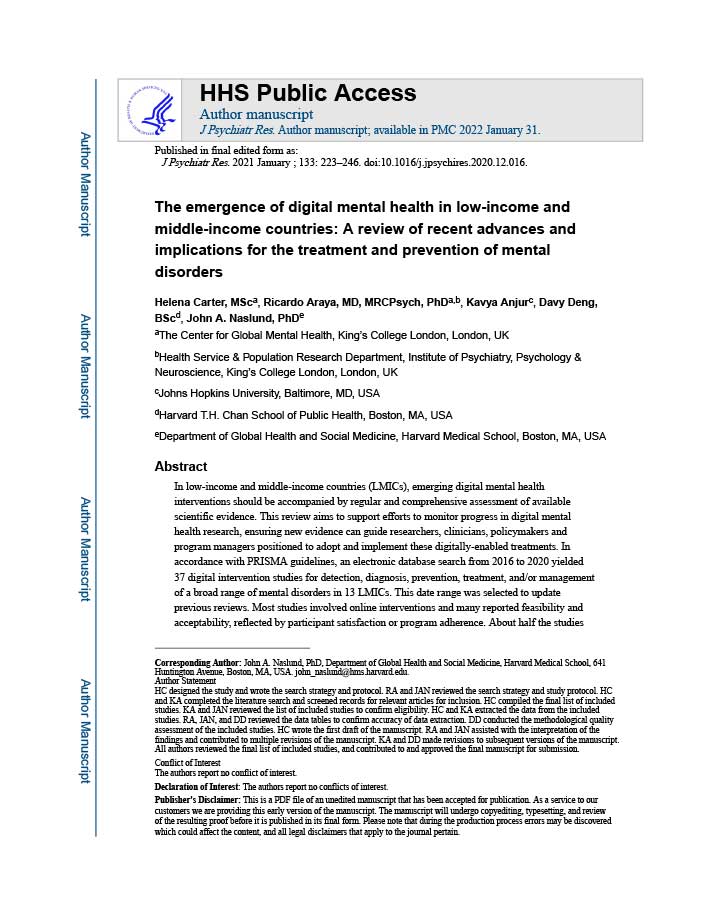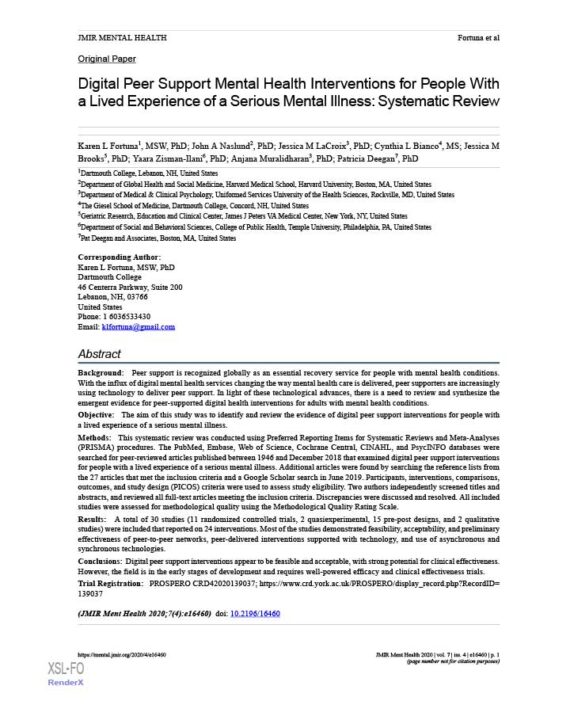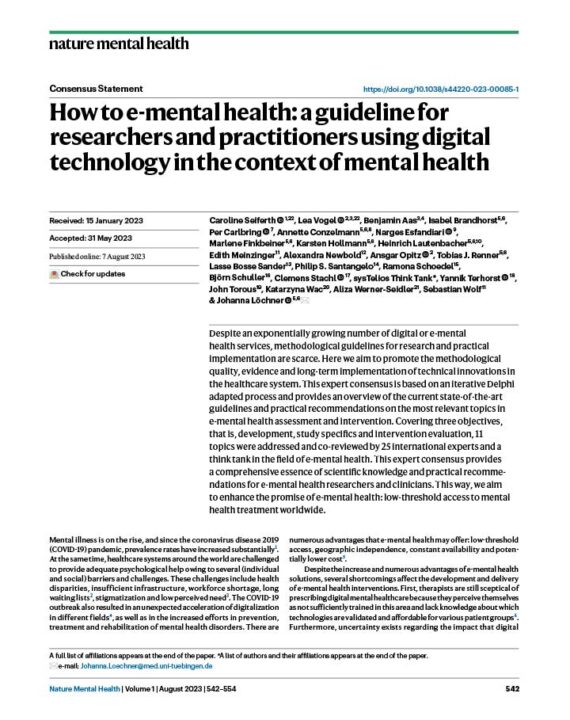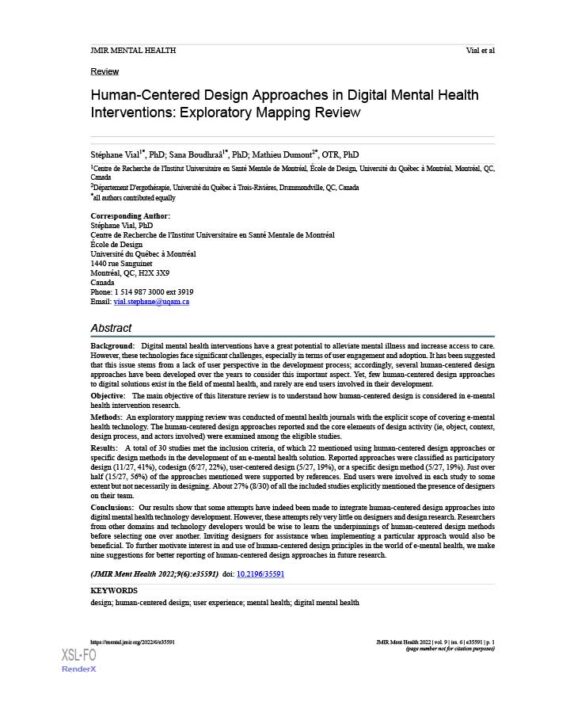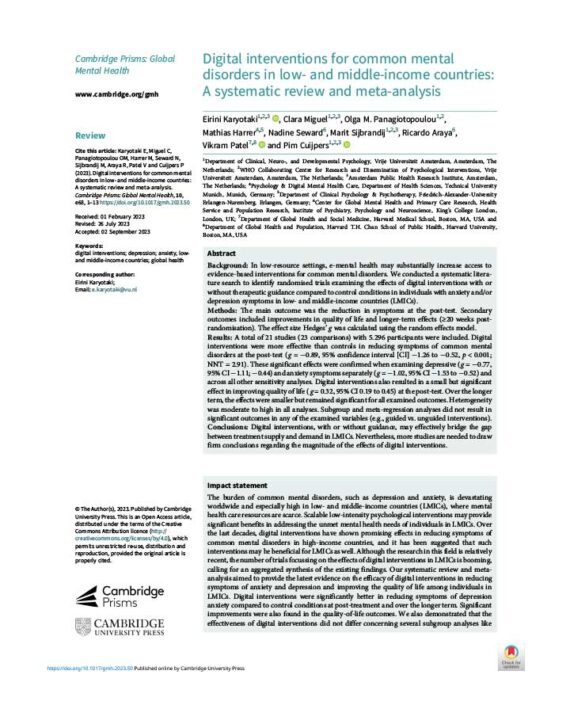This review supports efforts to monitor progress in digital mental health research, ensuring new evidence can guide researchers, clinicians, policymakers and program managers positioned to adopt and implement these digitally-enabled treatments. About half of the indcluded studies (N=23) reported clinical benefits based on changes in mental health. For depression and mood disorders, some digital interventions showed improvements in depressive symptoms, quality of life, treatment adherence, and recovery. While digital interventions show promise, it remains difficult to conclude that digital interventions are effective from these studies.
information
The emergence of digital mental health in low-income and middle-income countries: A review of recent advances and implications for the treatment and prevention of mental disorders
Information
English
2024
pdf
Translations
No translations available


